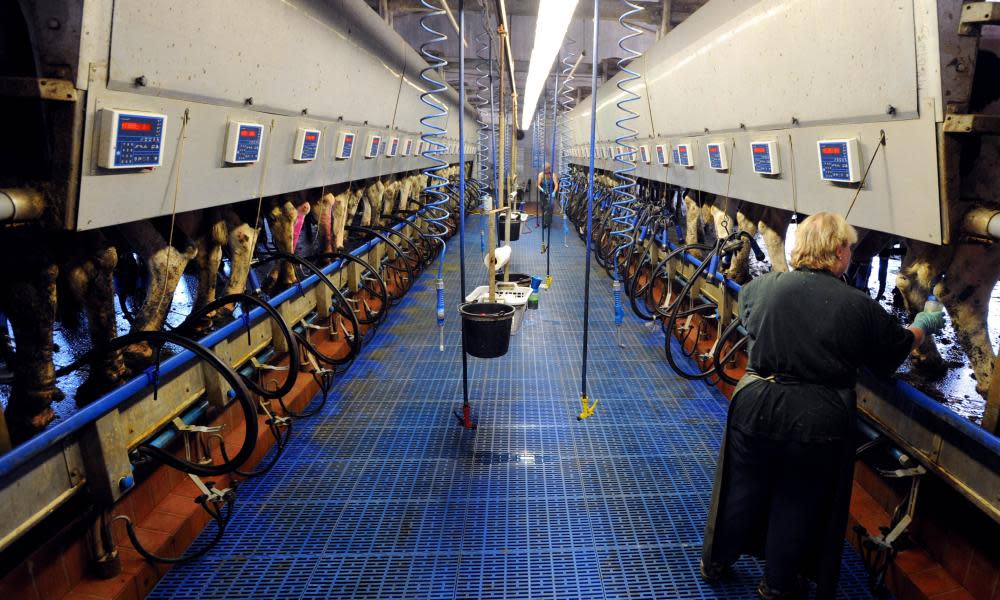Animals farmed: welcome to our series

There has been a revolution in the way we produce and consume meat and fish. Chicken, beef, pork or salmon were once rare Sunday-at-best luxuries. Now billions of people around the world can afford to eat fish and meat daily.
Intensive farming has made this possible: the realisation that money could be saved – and prices driven down – by increasing the scale of production, and reducing exposure to what were once seen as essential components of farming, such as sunshine, quality of life for the animals, space and natural grazing. A new artificial lifecycle was introduced instead: electric lights to simulate day and night, heating systems to simulate seasons, intensively selective breeding to speed up growth and fattening. Eggs are hatched on factory belts, chickens are crammed into sheds and cages, pigs are confined to crates, cows are reared in barns.
Some farmers stayed small – but not all could not match the cost savings of this model. Some got larger and larger. Farmers became business people. Business people bought out other farmers. In the process they made animal protein available to millions.
But what is the price? The industrialisation of meat and fish has led to unforeseen costs – to the welfare of the animals concerned, our environment and perhaps to our own health, too.
Growing awareness of those costs is now forcing an international and fractious debate on our farming model and the need to change. But what does change look like? How should we be producing meat and fish? And how do you go about reforming an industry so powerful and so integral to our political and economic systems?
Over the course of our new Animals farmed series, funded by the Open Philanthropy Project, and in partnership with the Bureau of Investigative Journalism, the Guardian will be examining this problem. We’ll be looking at how the animals that feed us live, and how the business of feeding us works.
You can sign up for our monthly newsletter to hear more, and you can send us your thoughts and ideas at Animalsfarmed@theguardian.com.

 Yahoo News
Yahoo News 